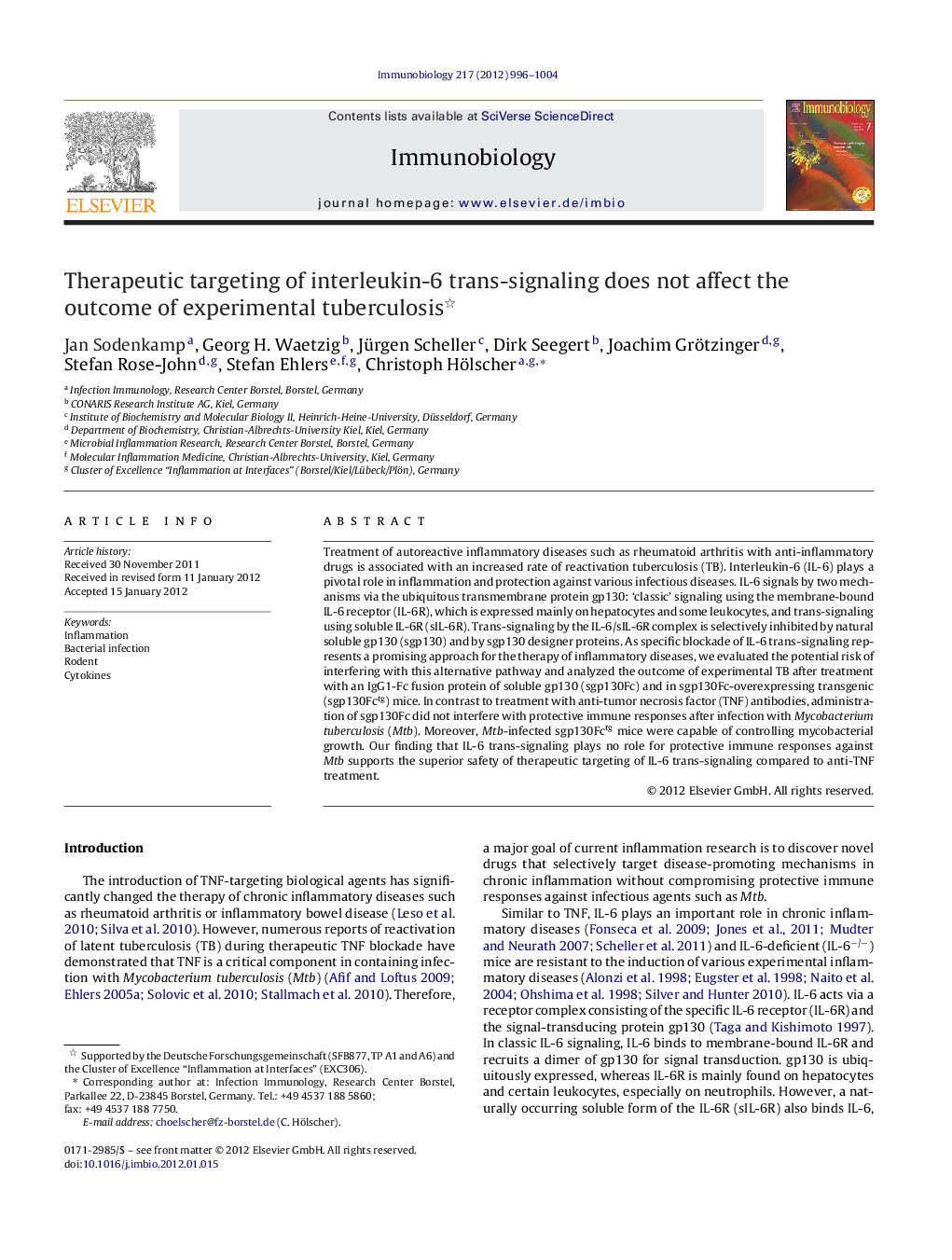| Article ID | Journal | Published Year | Pages | File Type |
|---|---|---|---|---|
| 2183075 | Immunobiology | 2012 | 9 Pages |
Treatment of autoreactive inflammatory diseases such as rheumatoid arthritis with anti-inflammatory drugs is associated with an increased rate of reactivation tuberculosis (TB). Interleukin-6 (IL-6) plays a pivotal role in inflammation and protection against various infectious diseases. IL-6 signals by two mechanisms via the ubiquitous transmembrane protein gp130: ‘classic’ signaling using the membrane-bound IL-6 receptor (IL-6R), which is expressed mainly on hepatocytes and some leukocytes, and trans-signaling using soluble IL-6R (sIL-6R). Trans-signaling by the IL-6/sIL-6R complex is selectively inhibited by natural soluble gp130 (sgp130) and by sgp130 designer proteins. As specific blockade of IL-6 trans-signaling represents a promising approach for the therapy of inflammatory diseases, we evaluated the potential risk of interfering with this alternative pathway and analyzed the outcome of experimental TB after treatment with an IgG1-Fc fusion protein of soluble gp130 (sgp130Fc) and in sgp130Fc-overexpressing transgenic (sgp130Fctg) mice. In contrast to treatment with anti-tumor necrosis factor (TNF) antibodies, administration of sgp130Fc did not interfere with protective immune responses after infection with Mycobacterium tuberculosis (Mtb). Moreover, Mtb-infected sgp130Fctg mice were capable of controlling mycobacterial growth. Our finding that IL-6 trans-signaling plays no role for protective immune responses against Mtb supports the superior safety of therapeutic targeting of IL-6 trans-signaling compared to anti-TNF treatment.
